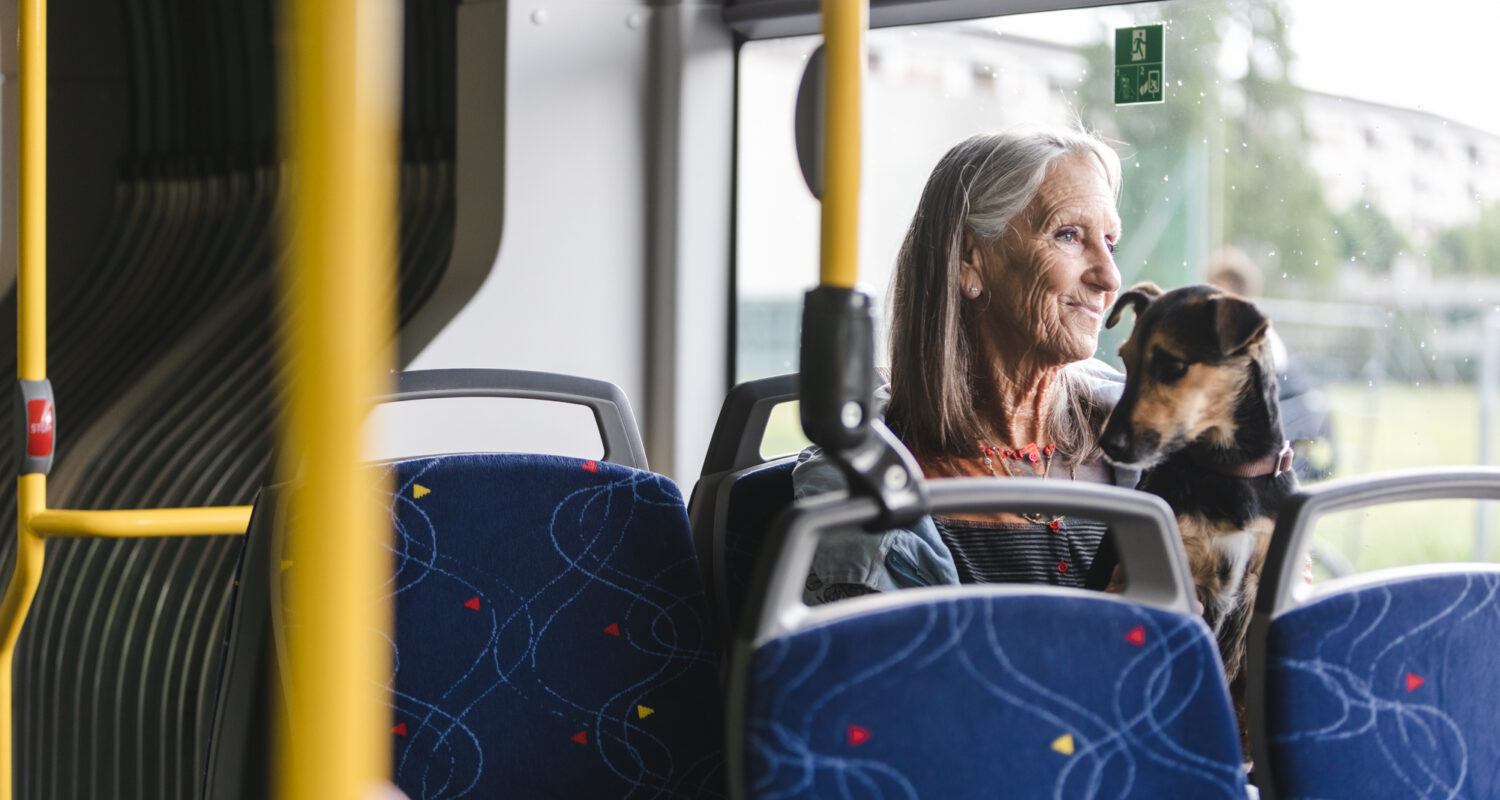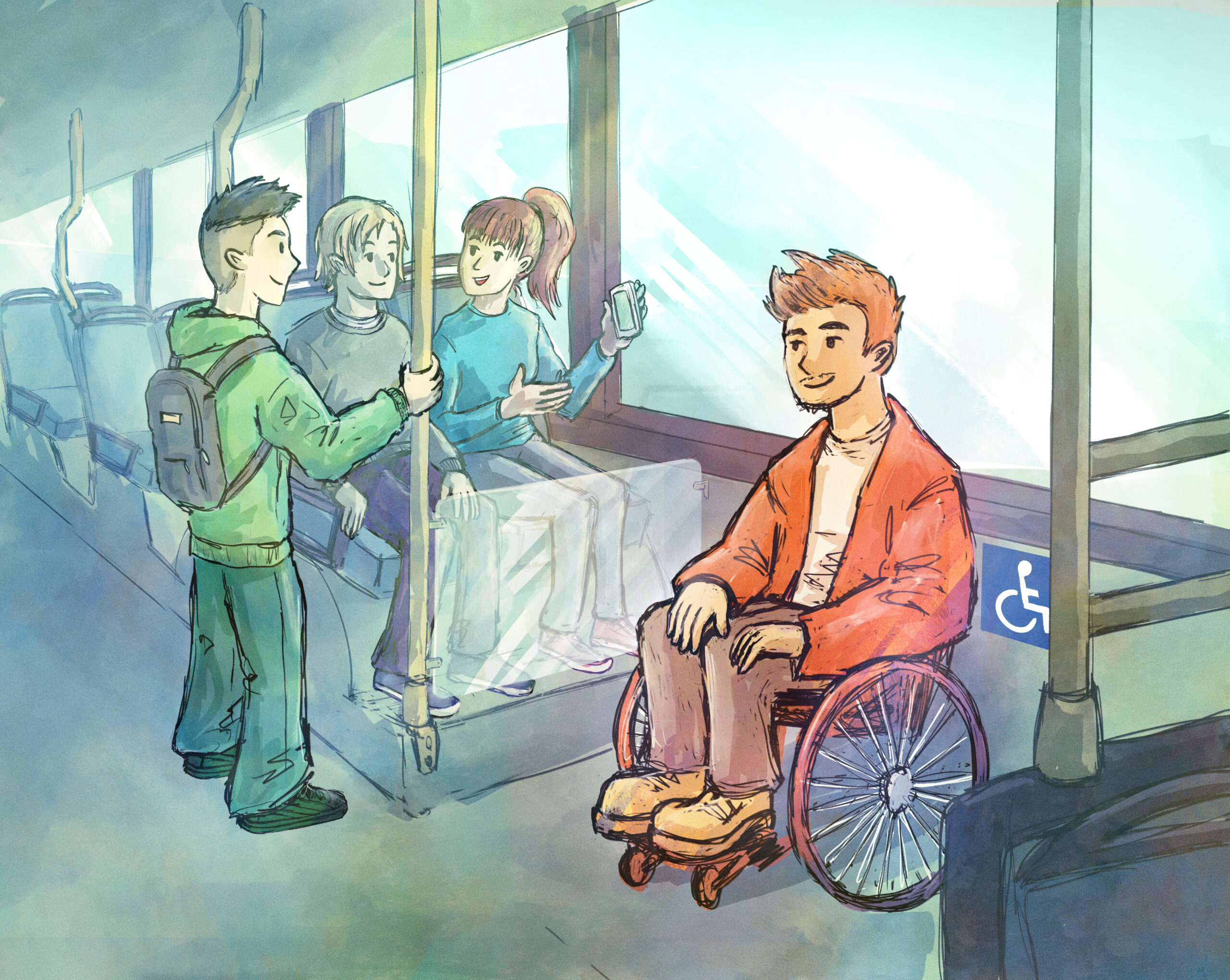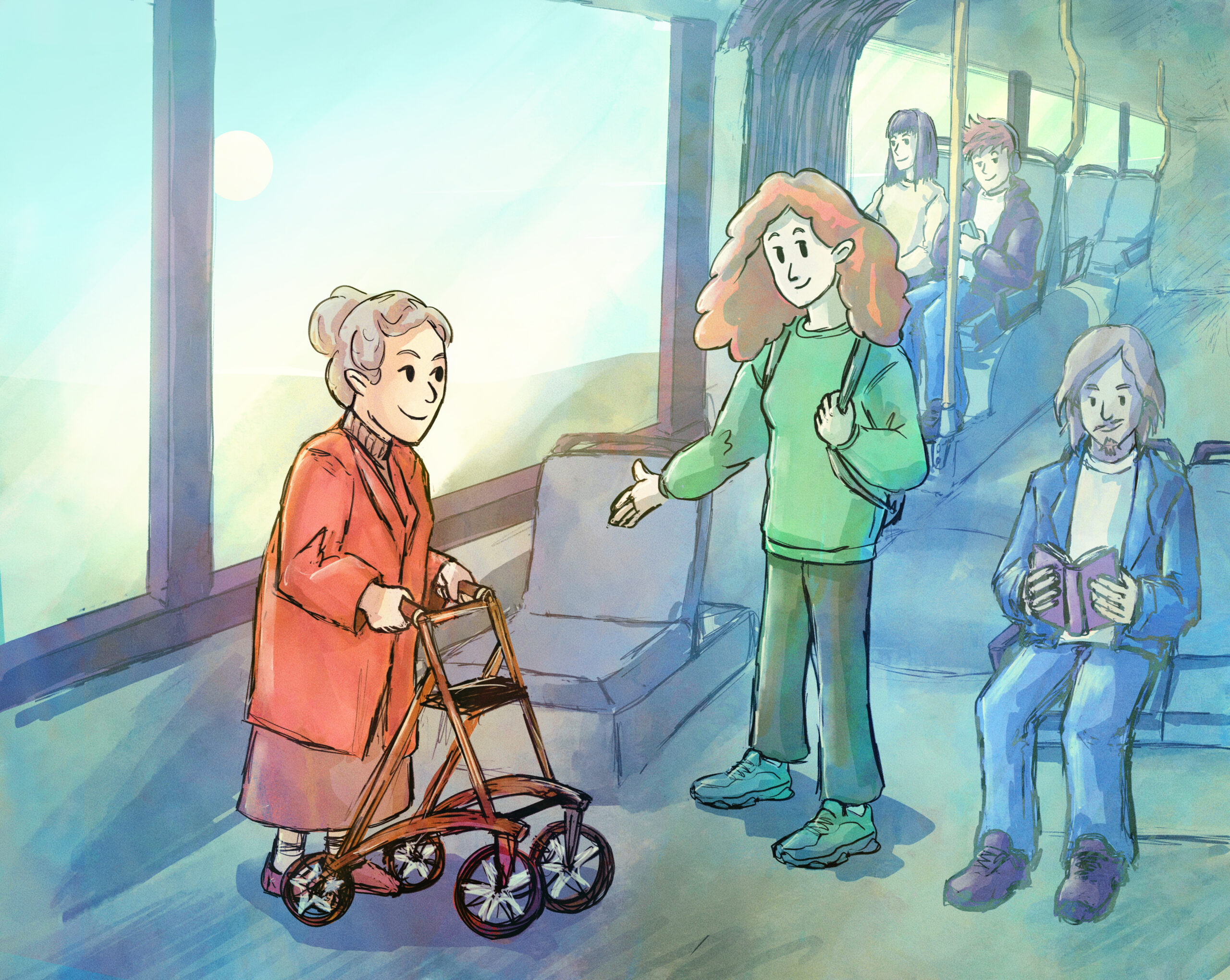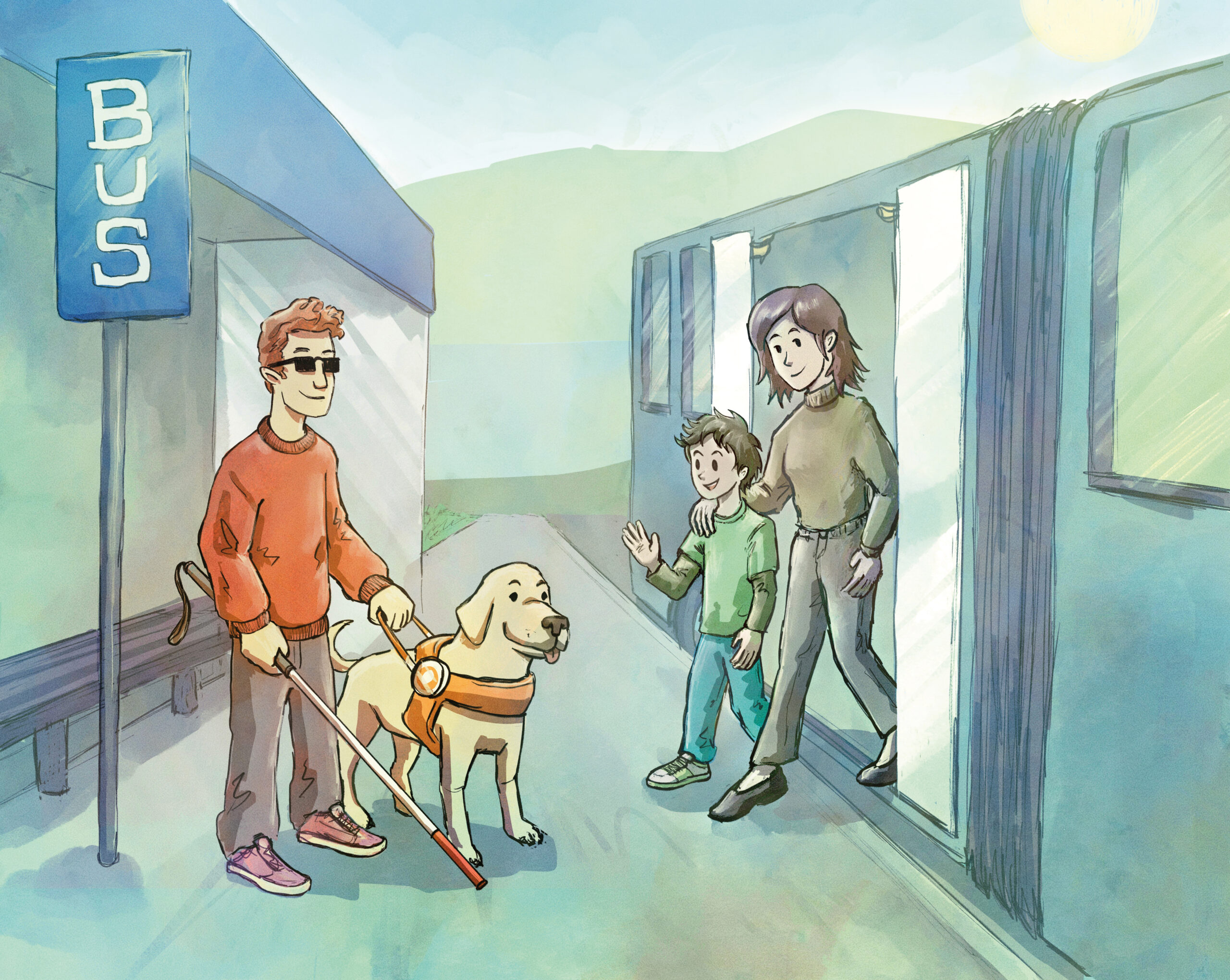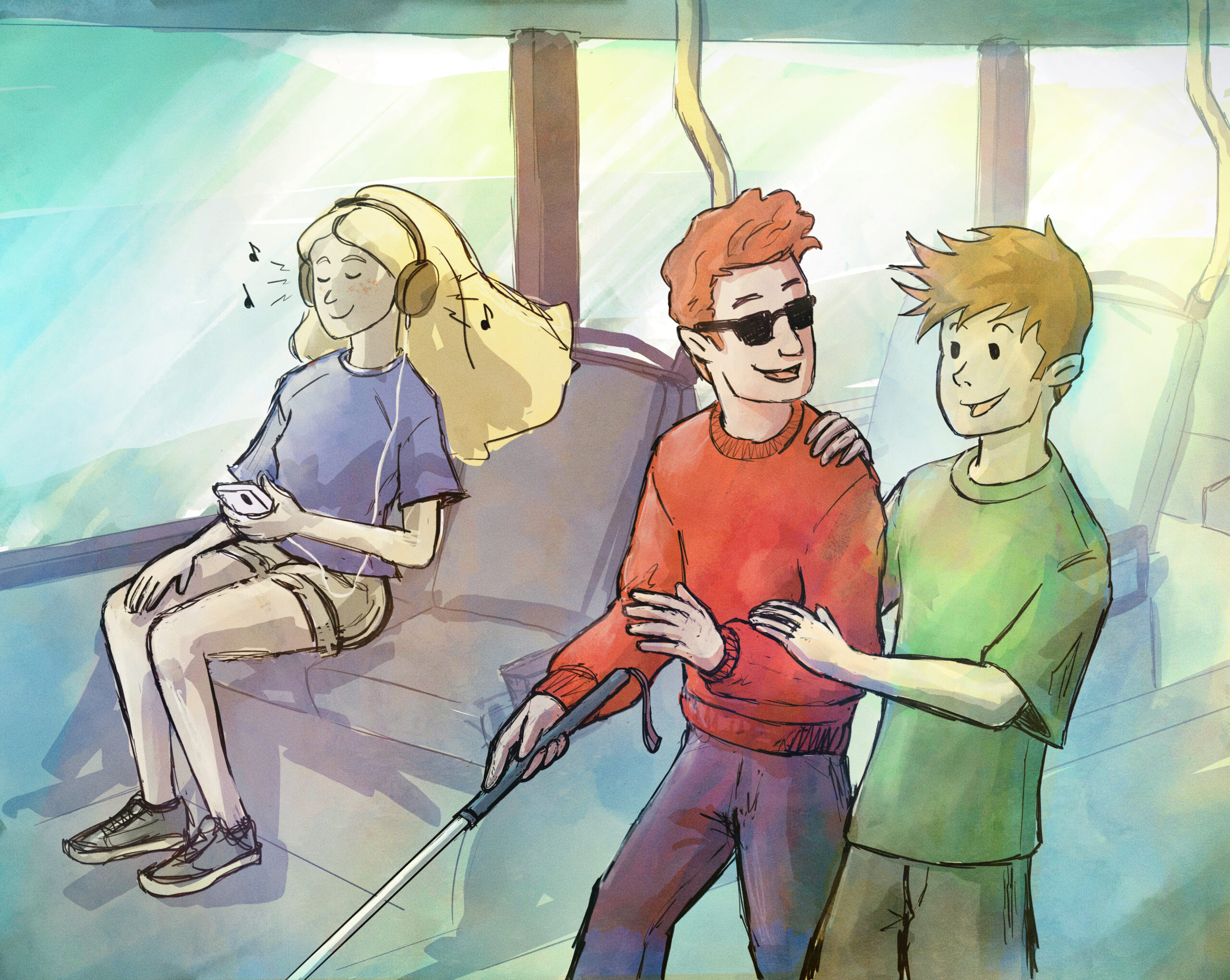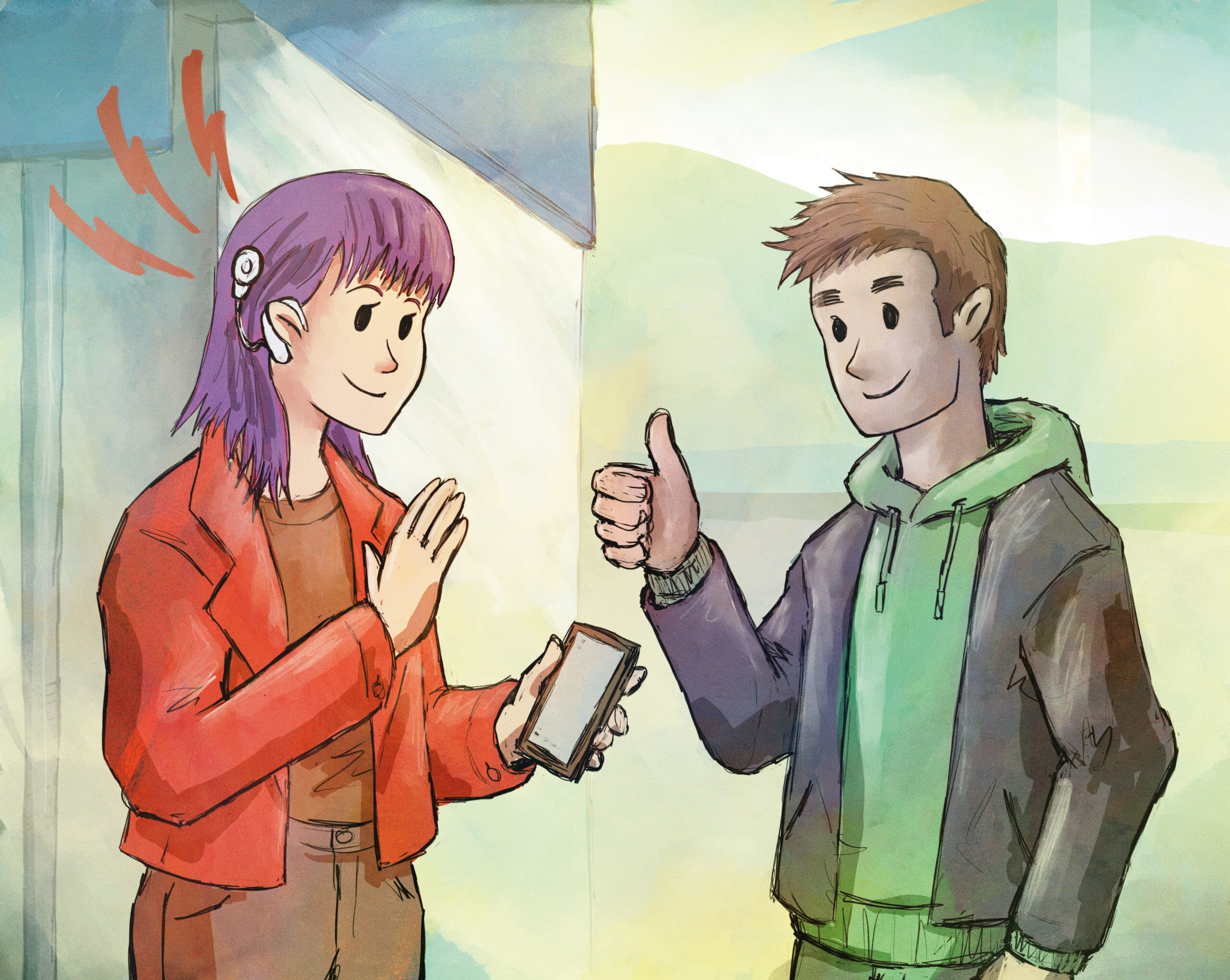The FART (Ferrovie Autolinee Regionali Ticinesi), in collaboration with the ‘inclusione andicap ticino’ association, is currently launching a new awareness-raising campaign aimed at promoting respect and attention towards persons with reduced mobility who use public transport. Through visual language, the project aims to make passengers aware of correct and inclusive behaviour.
Inclusion starts with small everyday gestures. The new campaign aimed at all passengers uses evocative and impactful images to convey a clear message: public transport must be a welcoming space for everyone. The cartoons – which will be disseminated in various contexts and channels, both physical and digital – draw attention to concrete situations, such as the importance of freeing reserved seats for wheelchair users, giving priority to those with reduced mobility, avoiding distracting guide dogs, helping people with hearing impairment.

